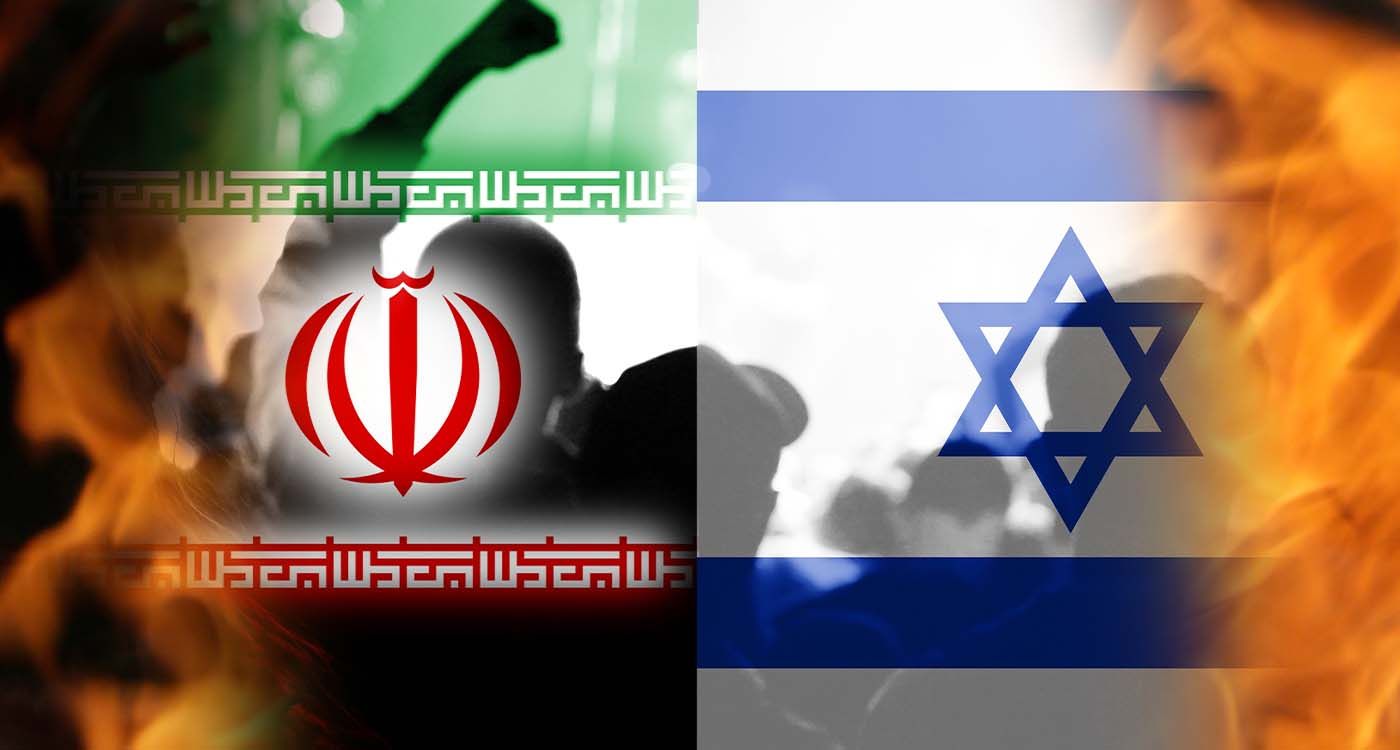
In the ideological conflict between Iran and Israel, psychoanalysis reveals what dogmatic discourse seeks to repress: desire, lack, the unconscious. Beneath the slogans and threats, the subject reappears – fractured, divided, nevertheless speaking.
“The master’s discourse is one that refuses to acknowledge its unconscious.” – Jacques Lacan
The war we are witnessing today is fought as much through scorched landscapes as through language. What is unfolding between Iran and Israel is not simply a military or geopolitical confrontation – it is a war of discourse. Each side constructs a closed-off narrative, saturated with certainties and devoid of doubt. Yet every attempt to lock down language – every form of dogma – brings about the return of what it seeks to exclude: the unconscious.
Far from being a passive backdrop, the unconscious is a structuring force. It speaks through leaders’ slips of the tongue, messianic fervor, obsessive slogans and collective fears. It emerges precisely where ideology tries to silence the subject. In the Iran-Israel conflict, it is omnipresent – not as a banner, but as a symptom.
At its core, ideological discourse seeks to seal itself off. It tolerates no questioning, no hesitation, no otherness. It asserts, repeats and sanctifies itself. It claims to be the absolute Other, the only holder of Truth. The two countries in conflict embody this logic: on one side, the Iranian theological-political discourse anchored in the figure of the martyr and the purity of revolutionary Islam; on the other, an Israeli ideology of absolute legitimation, rooted in a biblical narrative, the memory of genocide, a constant existential threat and a sacred identification with the nation-state.
But in both cases, the displayed certainty masks an anxiety: that of lack, chaos and internal division. Ideological discourse is, above all, a defense against desire – the fundamental, disorderly, irreducible force that courses through subjects. By locking down speech, regulating bodies and designating the enemy, ideology tries to contain what escapes. Yet the repressed returns. Freud demonstrated that repression does not eliminate; it displaces. In the incendiary slogans of the Iranian Supreme Leader, in the biblical military narratives of certain Israeli politicians and generals, in slips, contradictions and outbursts, the return of the repressed asserts itself. The unconscious refuses to be silenced.
Lacan called this the master’s discourse: a form of language in which authority speaks without allowing itself to be questioned, reducing the Other to mere obedience. This discourse sits uneasily with the unconscious because it assumes the subject is whole, undivided. It imposes Law, Truth and belonging. This logic dominates the political arenas of both Tehran and Tel Aviv: vertical, saturated discourses that leave no room for doubt.
But analysis shows these discourses are themselves haunted by what they try to exclude. Language naturally falters, slips and repeats. Leaders stumble over their words, overplay their roles and reveal internal contradictions. This was clear in recent speeches by Ali Khamenei, swinging between divine invocations and threats of destruction. It’s also evident in Israeli statements, both vengeful and paranoid, where excess exposes unrestrained anxiety.
Ideological discourse operates as a mechanism of exclusion. It singles out an outsider, a heretic, a traitor, an obstacle. In Iran, the enemy is named Israel – but also the West, unveiled women and dancing youth. In Israel, the enemy is the terrorist, the Palestinian – armed or unarmed – the nuclear Iranian, and at times the critical intellectual or the questioning soldier.
Discourse tries to fix identities, assign bodies and purify symbolic space. In doing so, it denies the constitutive lack within the subject – that gap Lacan called “symbolic castration.” It cannot tolerate hesitation, trembling or nuance. Hatred is the symptom of a discourse that seeks absolute control.
But these discourses cannot contain what they seek to erase. The symptom breaks through: in Iranian dissent, in Israeli fatigue, in the despair of mothers, in graffiti and rumor. Even under dictatorship, language leaks.
The body is where ideology fails. The body suffers and bleeds. It experiences pleasure where it shouldn’t. It never fully complies. Psychoanalysis teaches us that the unconscious manifests in the body – in its excesses, its pains and its disruptions.
Ideological wars produce bodies that are exhausted, monitored and put on display. But they also produce dissident bodies. The Iranian youth dancing without veils in a courtyard, the Israeli soldier who weeps, the rapper who twists official slogans – these are all symptoms, not in the pathological sense, but as truths of the subject against symbolic closure.
This conflict is also a verbal theater: fatwas, threats, sermons, tweets, military communiqués, archival footage, messianic speeches. Yet all these words, despite their claim to finality, are pierced. The slip of the tongue, the extra word, the silence held too long – all betray the reality that discourse seeks to conceal.
Psychoanalysis invites us to listen to these cracks – not to take sides, but to hear what, within every discourse of power, resists being confined. It reminds us that the subject exists, even when ideology denies it. It creates space for a voice that is neither sacred, nor military, nor propagandistic, but human – uncomfortable, and therefore free.
In the recent war between Iran and Israel, each side seeks to align language, territory and identity. Each state aims to embody Truth, History and Law. But this claim is destined to fail. There is always a remainder: a dream gone astray, an unfinished sentence, a desire that refuses to conform.
Confronted with bombings, censorship and slogans, psychoanalysis does not offer political solutions. Instead, it offers a gesture: the act of listening where discourse cracks. To hear what the subject cannot say but still insists upon. To interpret ideologies as attempts to stave off lack, and symptoms as persistent reminders of the truth of desire.
This gesture does not directly confront, it displaces. It opens a space for doubt, allows for interpretation and makes room for the unexpected. Even entangled in ideology, the speaking subject is never completely silenced.




Comments